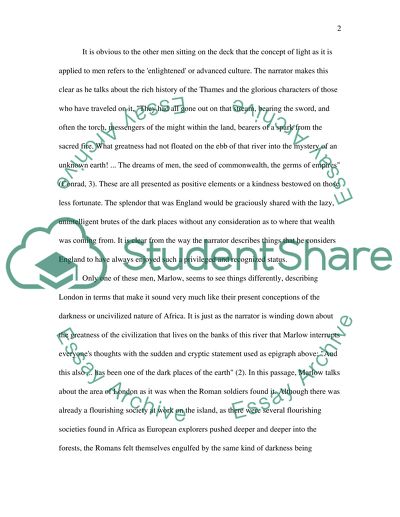Cite this document
(“Heart of Darkness Essay Example | Topics and Well Written Essays - 1000 words”, n.d.)
Retrieved from https://studentshare.org/environmental-studies/1409590-heart-of-darkness
Retrieved from https://studentshare.org/environmental-studies/1409590-heart-of-darkness
(Heart of Darkness Essay Example | Topics and Well Written Essays - 1000 Words)
https://studentshare.org/environmental-studies/1409590-heart-of-darkness.
https://studentshare.org/environmental-studies/1409590-heart-of-darkness.
“Heart of Darkness Essay Example | Topics and Well Written Essays - 1000 Words”, n.d. https://studentshare.org/environmental-studies/1409590-heart-of-darkness.


